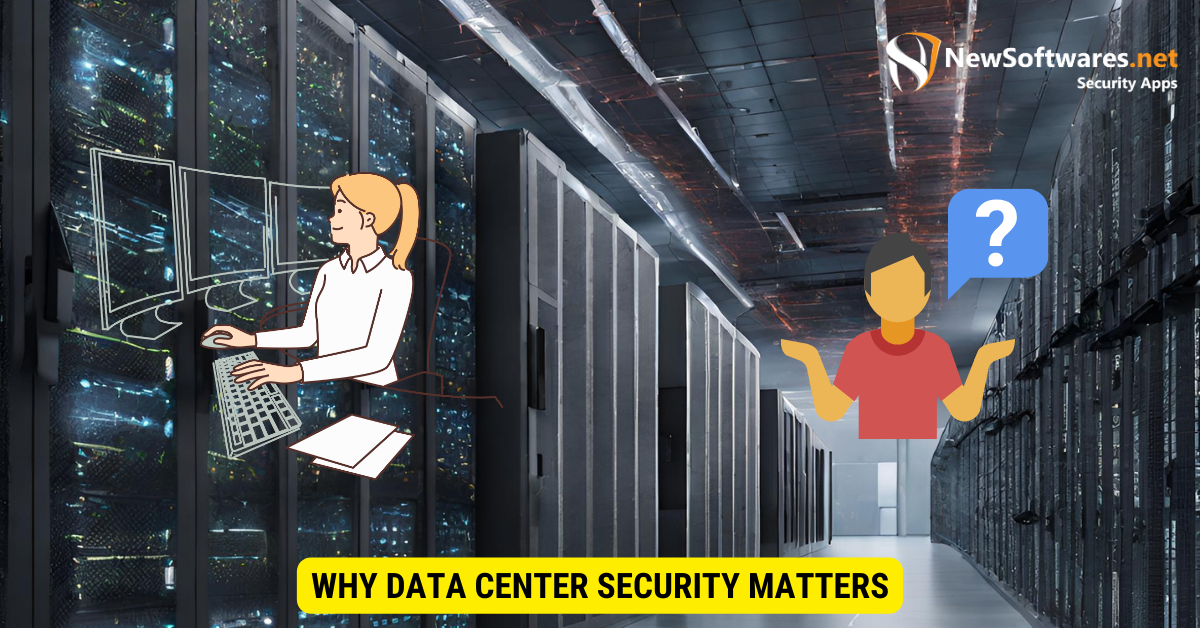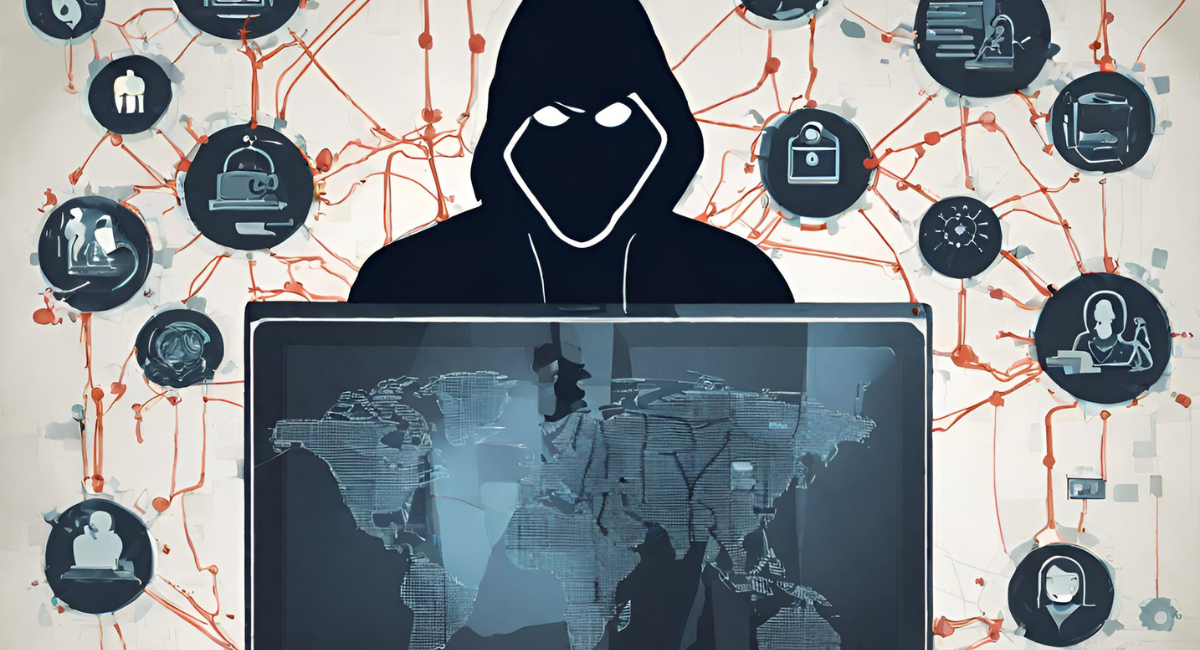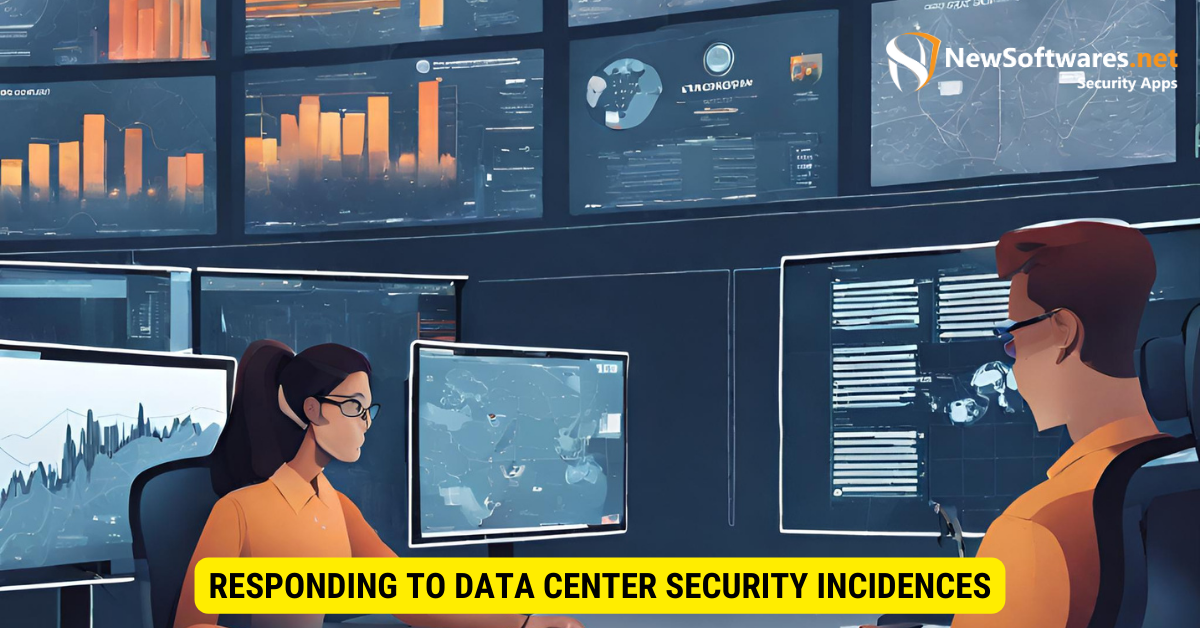Understanding data center security incidences involves recognizing the significance of data center security, knowing the types of threats they face (both physical and digital), comprehending the consequences of breaches, and implementing preventive measures as well as effective response strategies to ensure data integrity, business continuity, and organizational reputation.
Data centers play a crucial role in today’s digital-driven world, serving as the backbone of businesses’ operations and storing vast amounts of sensitive data. With cyber threats and physical breaches on the rise, understanding data center security incidents is of paramount importance. I will explore the significance of data center security, the types of security incidents they face, the impact of these incidences, preventive measures, and strategies for responding to security breaches.
The Importance of Data Center Security
Data centers are the nerve centers of modern business operations, housing critical infrastructure and sensitive data. They ensure that businesses stay connected, data is stored securely, and operations run smoothly. Data center security is vital as any compromise to its integrity can result in severe consequences for organizations. Breaches can lead to data loss, unauthorized access, service disruptions, and financial damages. Therefore, implementing robust security measures is essential to safeguard confidential information and maintain business continuity.
When it comes to data center security, various aspects need to be considered. Physical security actions play a crucial role in protecting the facility from unauthorized access. This includes implementing access controls, such as biometric authentication, surveillance cameras, and security personnel. Additionally, data centers often have multiple layers of security, including perimeter fencing, secure entry points, and restricted access areas to prevent unauthorized individuals from gaining physical access to the facility.
However, physical security is just one piece of the puzzle. Data centers also need to focus on cybersecurity to protect against digital threats. This involves implementing firewalls, intrusion detection systems, and encryption technologies to safeguard data from unauthorized access or malicious attacks. Regular vulnerability valuations and penetration testing are essential to identify and address any possible weaknesses in the security infrastructure.
The Role of Data Centers in Business Operations
Data centers are the lifeblood of organizations, serving various functions critical to business operations. They provide centralized storage and management of data, enabling efficient access and retrieval for employees and customers. Additionally, data centers support mission-critical services like cloud computing, application hosting, and disaster recovery. With businesses relying heavily on these services, ensuring data center security becomes imperative to safeguard confidential information and maintain uninterrupted operations.
Moreover, data centers play a crucial role in ensuring commercial continuity in the face of unforeseen events. Natural disasters, power outages, or cyber-attacks can disrupt operations, but data centers equipped with robust security measures and backup systems can help mitigate the impact. Redundant power supplies, backup generators, and uninterruptible power supply (UPS) systems ensure that critical operations remain unaffected even during power failures. Data replication and backup strategies further enhance the resilience of data centers, allowing for quick recovery in case of data loss or system failures.
Why Data Center Security Matters

Data center security matters because the consequences of breaches can be devastating. A compromised data center can lead to intellectual property theft, financial losses, legal liabilities, and reputational damage. The loss of customer trust and confidence can have long-term repercussions on business viability. Moreover, compliance requirements, such as the General Data Protection Regulation (GDPR) and industry-specific regulations, necessitate proper security measures to protect complex information from unauthorized access or disclosure.
Furthermore, data center security is not a one-time effort but an ongoing process. As technology evolves and new threats emerge, data centers must continuously adapt and update their security measures. Regular audits, risk assessments, and employee training programs are essential to ensure that security protocols are up to date and that personnel are aware of potential risks and best practices.
In conclusion, data center security is of utmost importance in today’s digital landscape. Organizations must invest in robust physical and cybersecurity measures to defend their critical infrastructure and sensitive data. By doing so, they can safeguard their operations, maintain customer trust, and fulfill with regulatory requirements. Data centers are the backbone of modern business operations, and ensuring their security is crucial for long-term success.
Types of Data Center Security Incidences
Data centers face various types of security incidences, both physical and cybersecurity-related. Understanding these incidents is crucial for devising comprehensive security strategies.
When it comes to data center security, there are numerous challenges that organizations must address. Let’s delve deeper into the different types of security incidents that data centers commonly encounter.
Physical Security Incidences
Physical security incidences involve unauthorized access to data center facilities, vandalism, theft, and equipment damage. These incidents can have severe consequences, ranging from financial losses to compromised data integrity.
One common physical security incident is unauthorized access, where individuals gain entry to data center facilities without proper authorization. This can occur through various means, such as tailgating, where an unauthorized person follows an authorized individual into the facility.
Vandalism is another physical security incident that data centers must guard against. It can involve deliberate destruction of equipment, tampering with cables, or defacing infrastructure. Such acts not only disrupt operations but also compromise the integrity and availability of critical data.
Theft is a significant concern for data centers, as valuable equipment and sensitive information are prime targets for criminals. From servers and networking devices to storage devices and backup tapes, all these assets must be adequately protected to prevent theft.
Equipment damage is yet another physical security incident that can happen due to accidents, natural disasters, or negligence. Power outages, fire incidents, or mishandling of equipment can lead to irreparable damage, causing significant disruptions to data center operations.
To mitigate these physical security incidences, data centers employ various measures. Perimeter fencing acts as the first line of defense, preventing unauthorized access to the facility. CCTV surveillance systems are strategically placed to monitor and record activities, aiding in the identification of potential security breaches. Biometric authentication, such as impression or iris scanning, enhances an extra layer of security by ensuring that only authorized persons can enter restricted areas. Additionally, security patrols are conducted regularly to deter any possible threats and ensure the safety of the facility.
Cybersecurity Incidences

Cybersecurity incidences pose a significant threat to data centers, as they can result in unauthorized access, data breaches, and disruption of services. With the increasing sophistication of cyber attacks, data centers must remain vigilant and implement robust security measures to safeguard their infrastructure and sensitive information.
Hacking attempts are a common cybersecurity incident that data centers face. Hackers exploit vulnerabilities in software, network infrastructure, or even employee actions to gain unauthorized access to systems. Once inside, they can steal sensitive data, manipulate information, or cause extensive damage to the infrastructure.
Malware infections are another prevalent cybersecurity incident that data centers must combat. Malicious software can enter the system through various vectors, such as email attachments, compromised websites, or infected external devices. Once installed, malware can disrupt operations, steal data, or provide unauthorized access to cybercriminals.
Data breaches are a nightmare scenario for data centers, as they can result in the exposure of complex data, financial losses and reputational damage. Cybercriminals target data centers to gain access to valuable data, which can include personally identifiable information (PII), financial records, or intellectual property.
Distributed denial-of-service (DDoS) attacks are a particularly disruptive cybersecurity incident. By overwhelming a data center’s network or servers with a flood of traffic, cybercriminals can render services unavailable to legitimate users. This can lead to substantial financial losses and damage the reputation of the data center.
To combat these cybersecurity incidences, data centers employ a multi-layered approach to security. Firewalls act as a barrier between the internal network and external threats, preventing unauthorized access and filtering out malicious traffic. Intrusion detection systems (IDS) monitor network traffic for suspicious activities and alert administrators in real time. Encryption is used to protect sensitive data, ensuring that even if it is intercepted, it remains unreadable to unauthorized individuals. Regular employee training and awareness programs are also crucial in educating staff about potential cybersecurity threats and best practices for keeping a secure environment.
By understanding the various types of security incidents that data centers face, organizations can develop comprehensive security strategies that address both physical and cybersecurity threats. Implementing robust security measures and staying updated with the latest security practices will help data centers protect their infrastructure, maintain data integrity, and ensure uninterrupted service delivery.
The Impact of Security Incidences on Data Centers
Security incidences can have far-reaching consequences for data centers and the organizations they serve. It is essential to recognize these impacts to comprehend the urgency of addressing and preventing security breaches.
Financial Consequences of Security Breaches
Security breaches can result in important financial losses for organizations. Costs may include incident response and recovery, legal fees, regulatory fines, customer compensation, and damage to the organization’s value. Moreover, the loss of business due to reputational damage can have long-term financial implications. Investment in robust security measures can help mitigate these potential financial burdens.
Reputational Damage from Security Incidences
Security breaches can severely damage an organization’s reputation and erode customer trust. The negative publicity and loss of confidence can lead to customer churn and impact future business opportunities. Rebuilding a tarnished reputation can be a lengthy and costly process. Therefore, implementing effective security measures and promptly responding to security incidents are crucial to safeguarding an organization’s reputation.
Preventing Data Center Security Incidences
Prevention is key when it comes to data center security. Proactive security measures can significantly reduce the risk of security breaches and their associated consequences.
Best Practices for Physical Security
Implementing robust physical security measures is essential to prevent unauthorized access and deter physical breaches. Best practices include restricting access through access control systems, installing surveillance cameras, using motion sensors and alarms, conducting regular security audits, and training employees on security protocols. Regular drills and testing can help identify vulnerabilities and improve preparedness.
Cybersecurity Measures for Data Centers
To combat the ever-evolving cyber threat landscape, data centers must adopt multi-layered cybersecurity measures. This includes employing firewalls, intrusion detection systems, antivirus software, and regular patch management. Encryption of data both at rest and in transit, strong authentication mechanisms, and continuous monitoring of network traffic are vital components of a robust cybersecurity strategy. Regular employee cybersecurity training is also essential to promote awareness and ensure adherence to security protocols.
Responding to Data Center Security Incidences

Despite preventive measures, incidents may still occur. Therefore, having a well-defined incident response plan is crucial to minimize the impact and facilitate a swift recovery.
Incident Response Planning
An effective incident response plan outlines the steps to be taken when a security breach occurs. It involves clearly defining roles and responsibilities, establishing communication protocols, and setting up incident response teams. The plan should include procedures for incident assessment, containment, eradication, recovery, and post-incident review. Regular testing and updating of the plan are vital to ensure its effectiveness.
Post-Incident Recovery Strategies
Recovering from a security breach requires a well-thought-out strategy aimed at restoring normal operations and minimizing the impact on the organization. This includes identifying and addressing vulnerabilities, restoring compromised systems, ensuring data integrity, and conducting forensic investigations to determine the source cause of the breach. Additionally, communicating transparently with stakeholders is vital to maintain trust and confidence.
Key Takeaways
- Data centers are pivotal – They play an integral role in modern business operations, storing critical and sensitive data.
- Multifaceted security threats – Data centers face both physical and digital security challenges that require a comprehensive security strategy.
- Consequences are severe – Breaches can result in financial, reputational, and operational damages.
- Prevention is paramount – Proactive measures, both in physical and cybersecurity domains, significantly reduce risks.
- Preparedness is key – Despite preventive measures, having an effective incident response plan is essential for timely and effective reaction.
FAQs
What is the importance of data center security?
Data centers are crucial for modern business operations, and breaches can lead to data loss, unauthorized access, disruptions, and financial damages.
What are the main types of data center security incidents?
Data centers face physical security incidences like unauthorized access, vandalism, theft, and equipment damage, as well as cybersecurity incidences like hacking attempts, malware infections, data breaches, and DDoS attacks.
How can data centers ensure physical security?
They can implement measures like access controls, surveillance cameras, biometric authentication, perimeter fencing, secure entry points, and regular security patrols.
What are the impacts of security breaches on data centers?
Security breaches can lead to important financial losses, reputational damage, customer trust erosion, and potential legal liabilities.
How should data centers respond to security incidents?
They should have a defined incident response plan detailing steps for assessment, containment, eradication, recovery, and post-incident review. Effective communication and post-incident recovery strategies are also essential.
Conclusion
Understanding data center security incidents is crucial in today’s digital landscape, where organizations heavily rely on data centers to store and process critical information. By recognizing the importance of data center security, the types of security incidents they face, and the impact of these incidents, organizations can implement effective preventive measures and response strategies. Prioritizing data center security is a proactive approach to safeguarding sensitive data, maintaining business continuity, and preserving organizational reputation in the face of evolving security threats.
